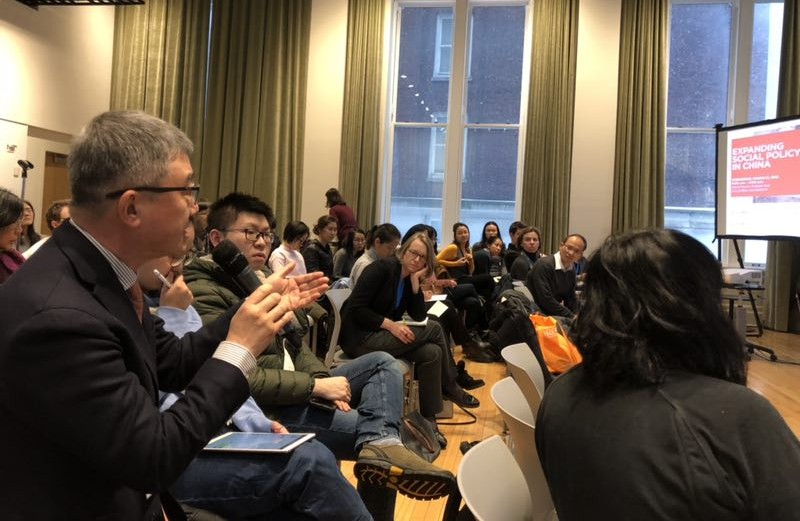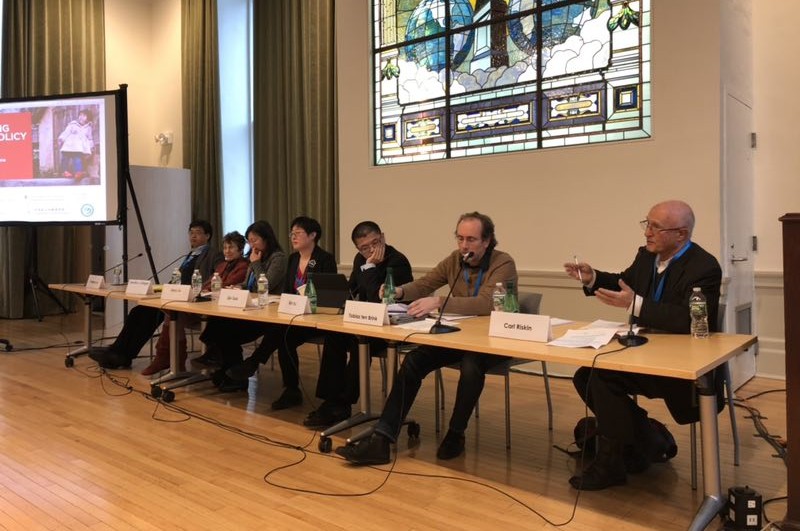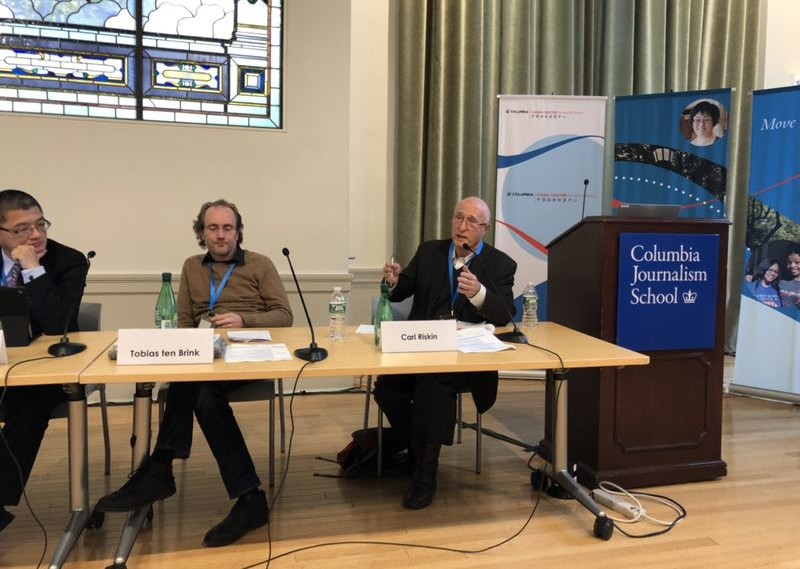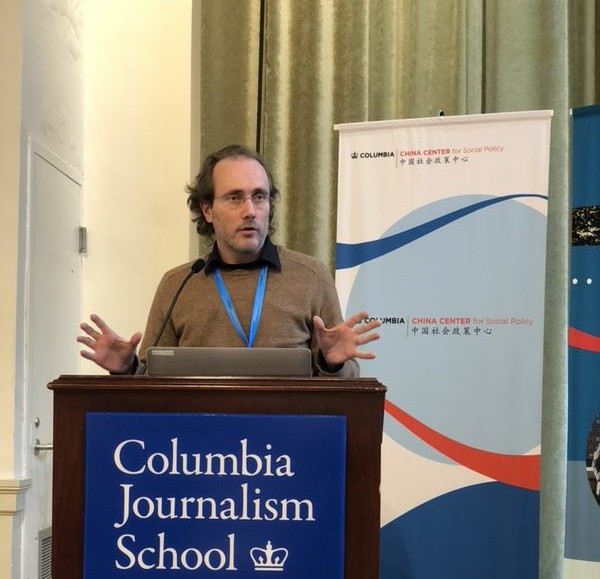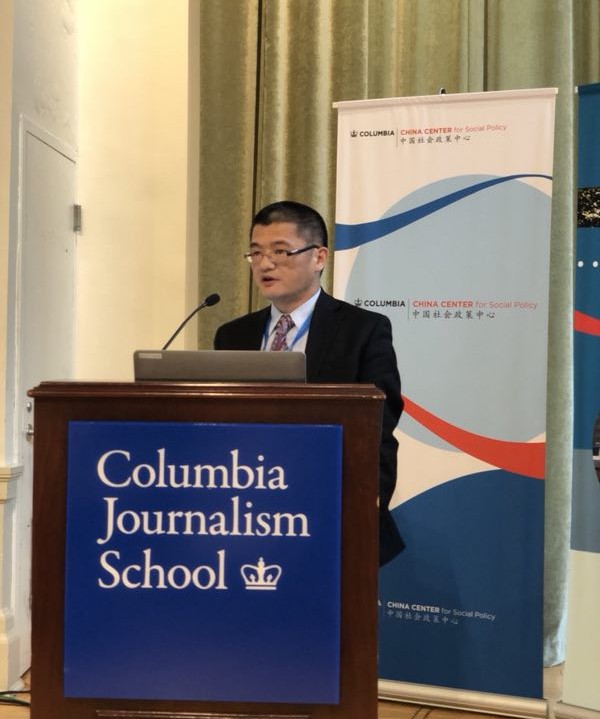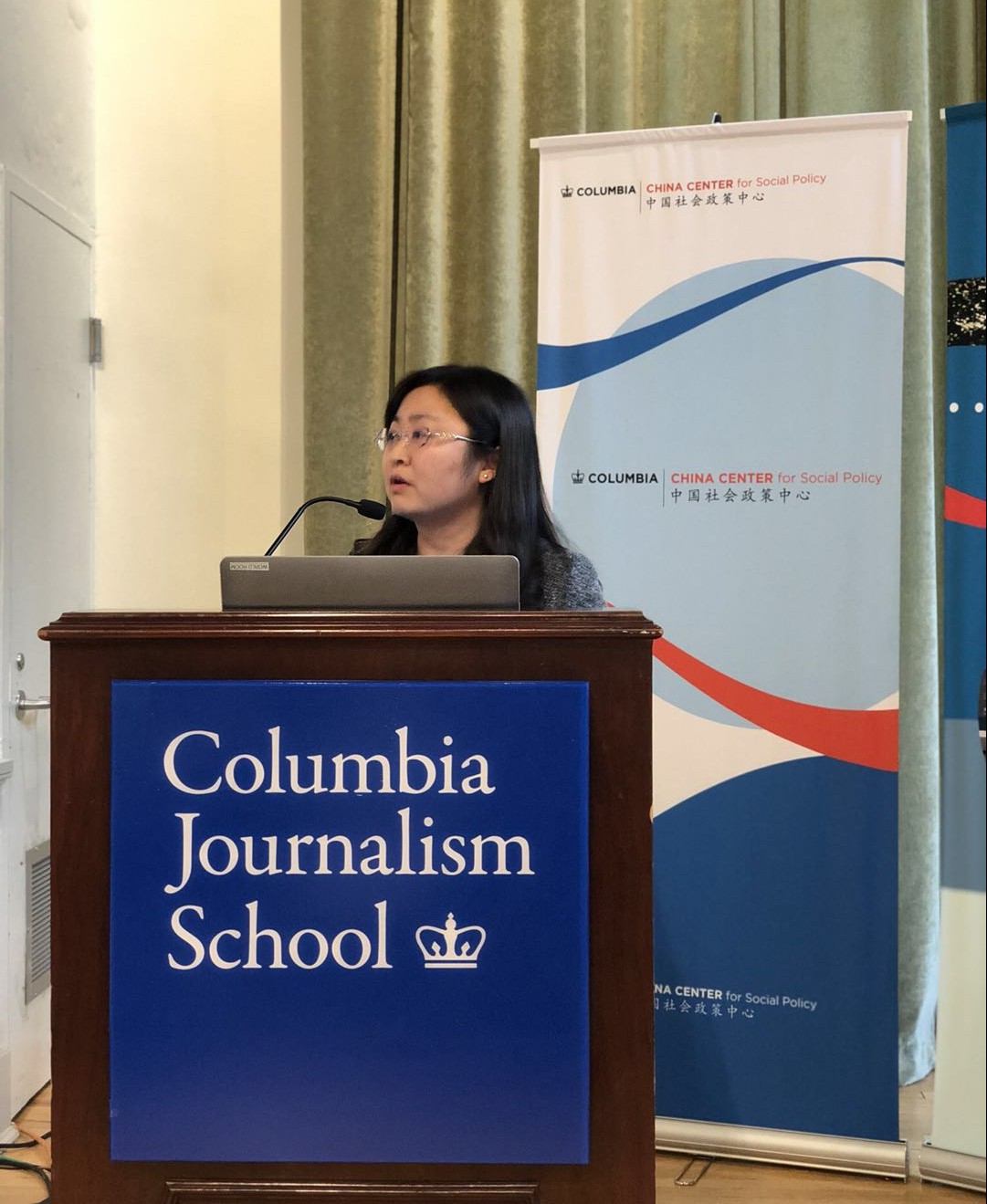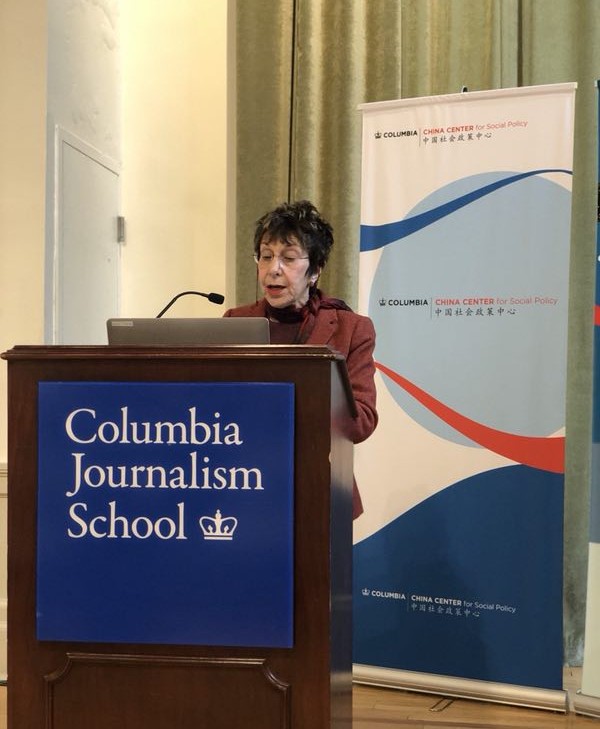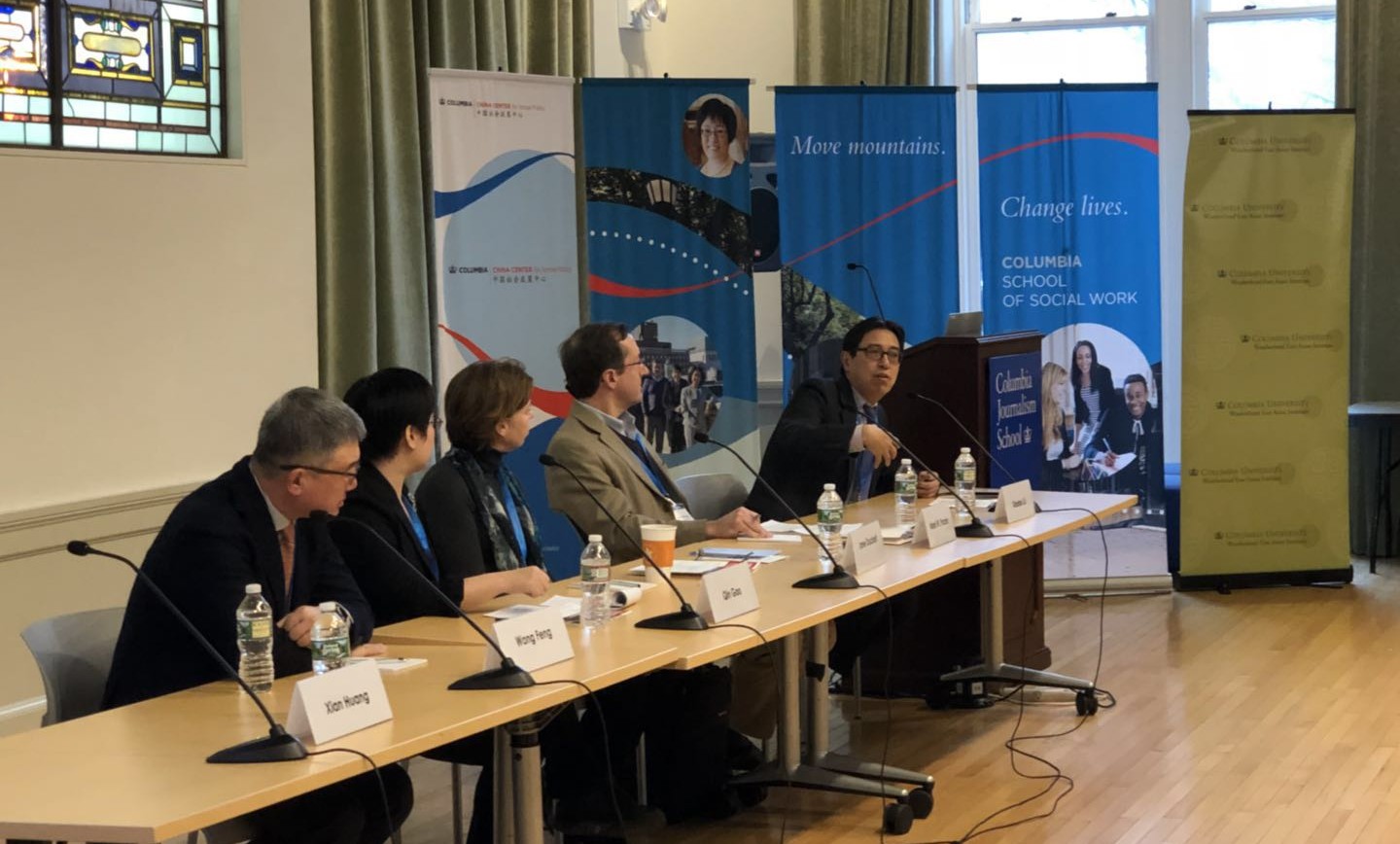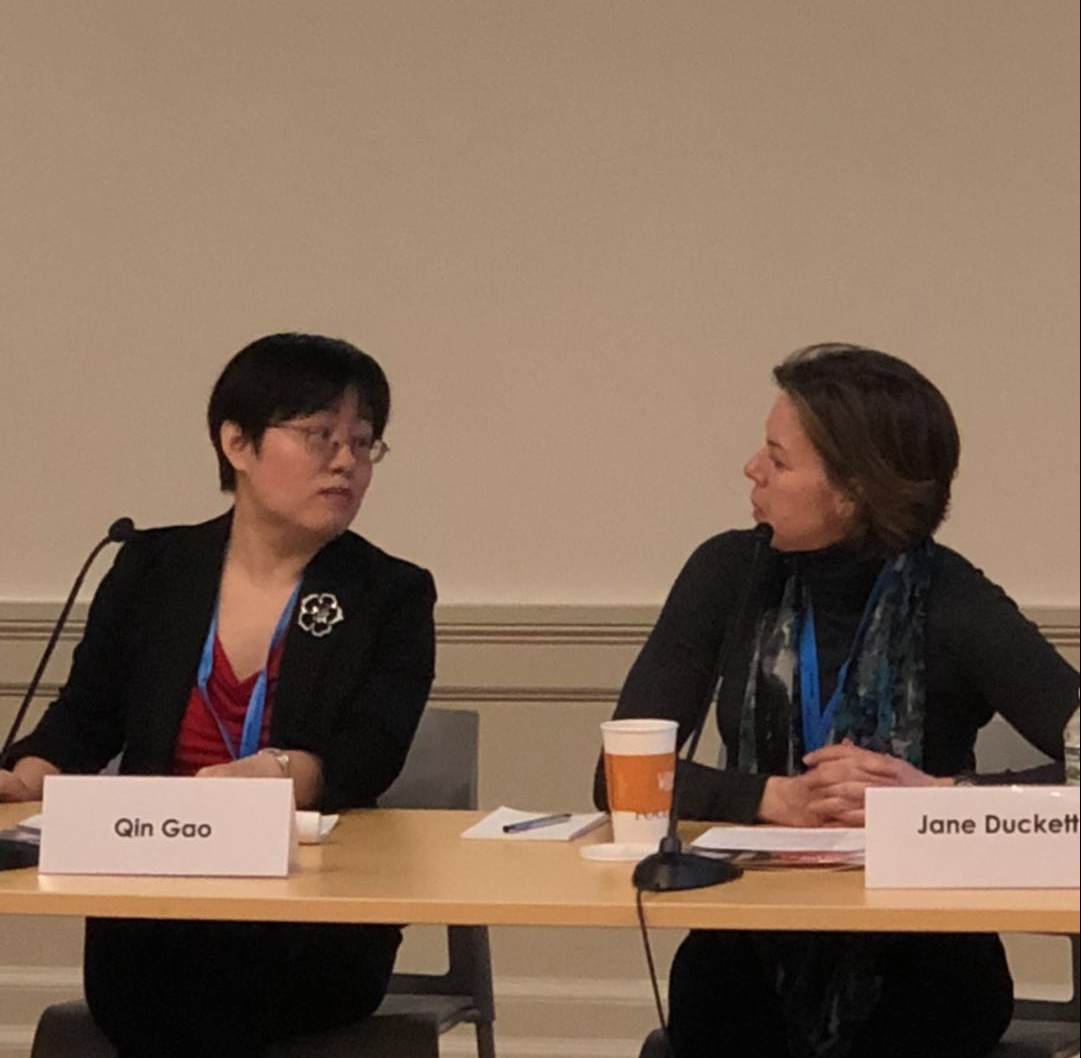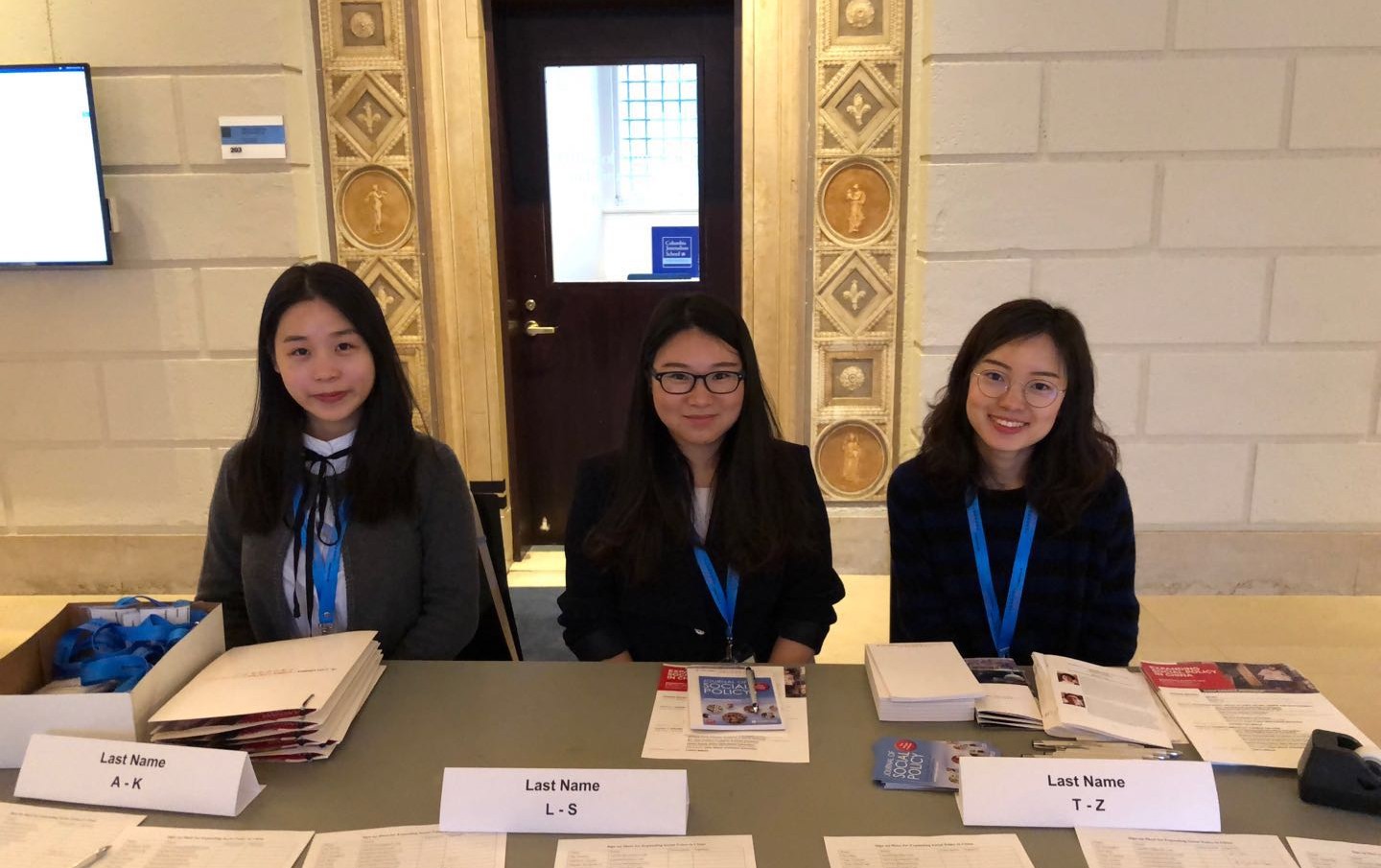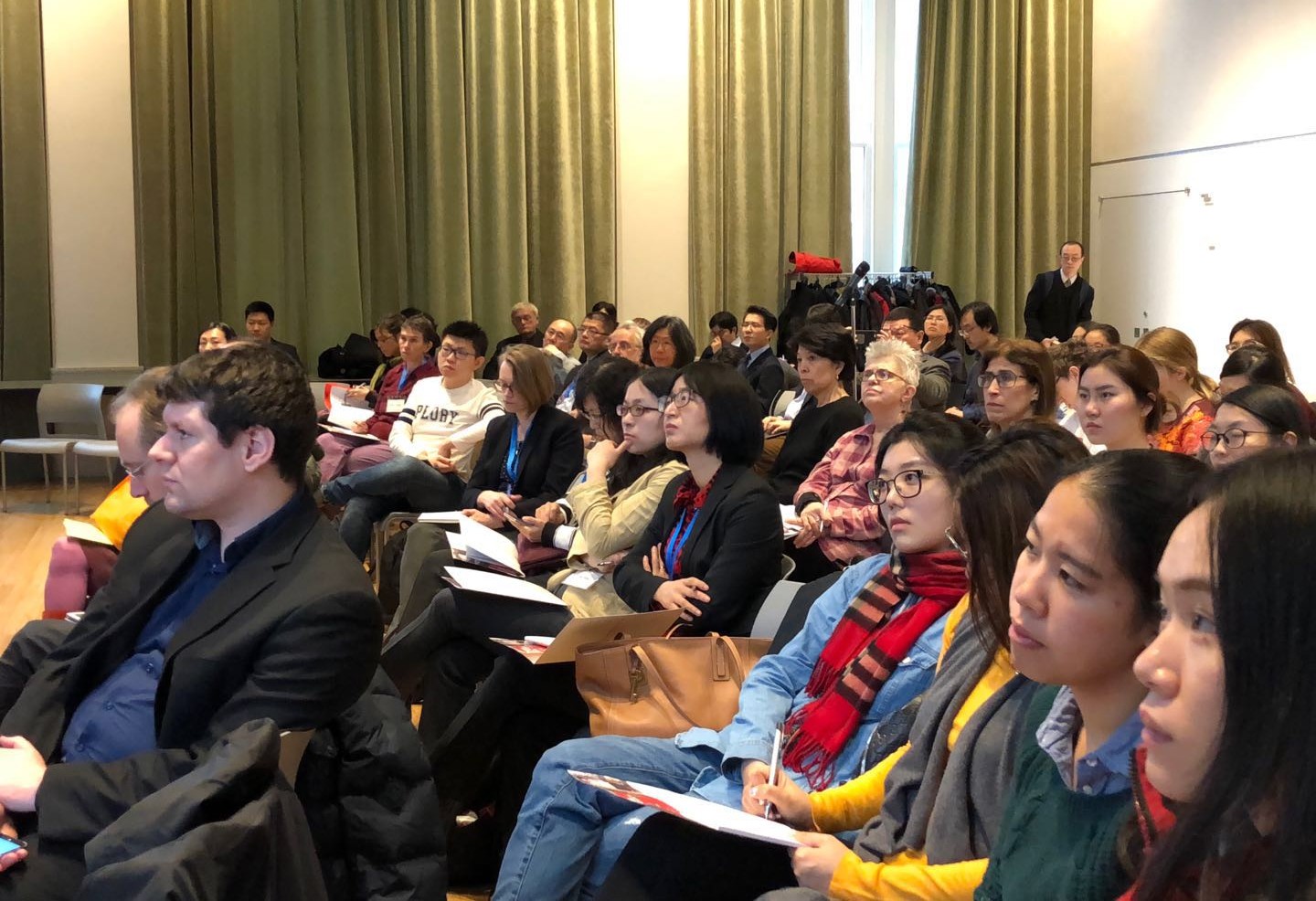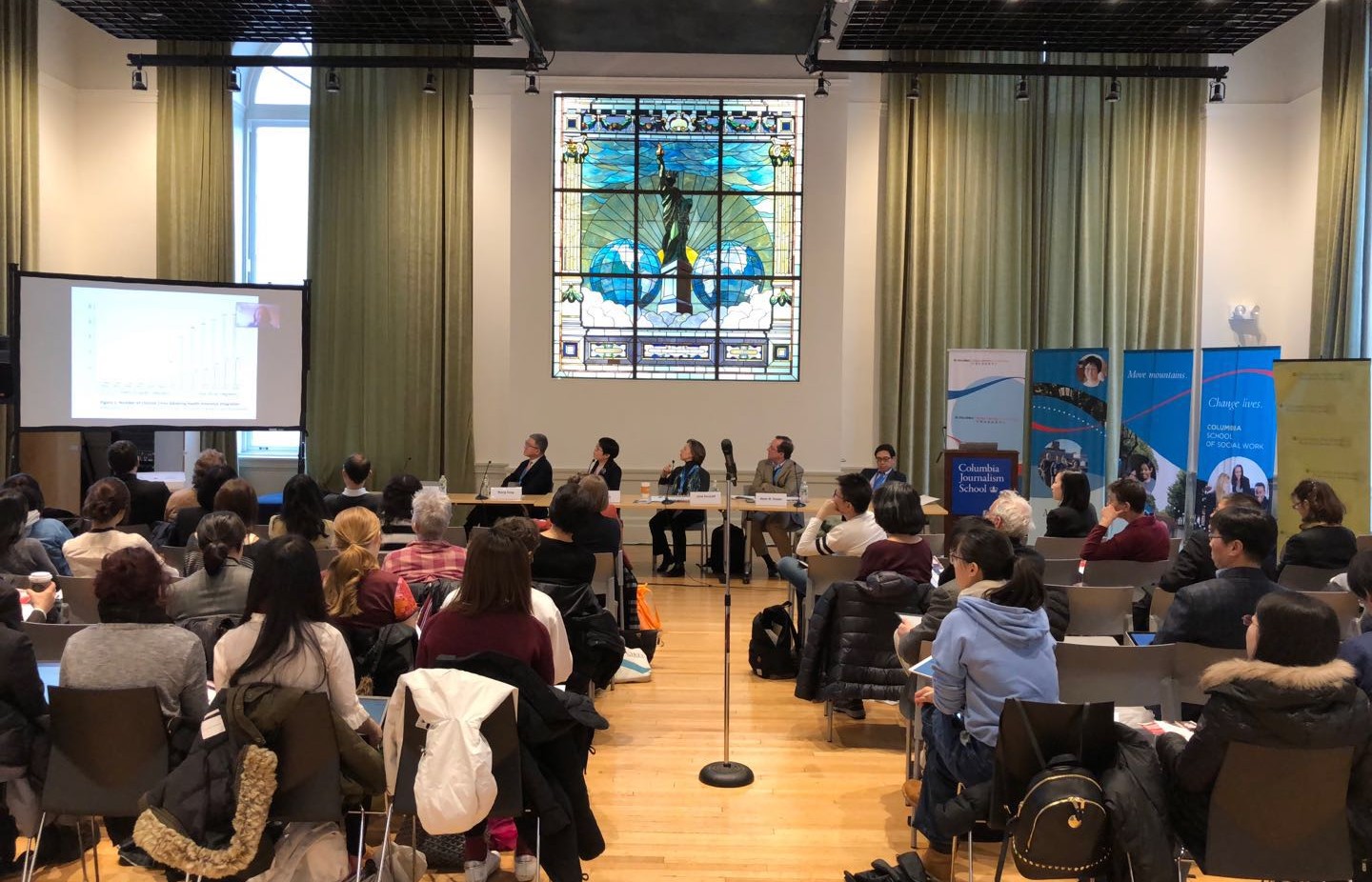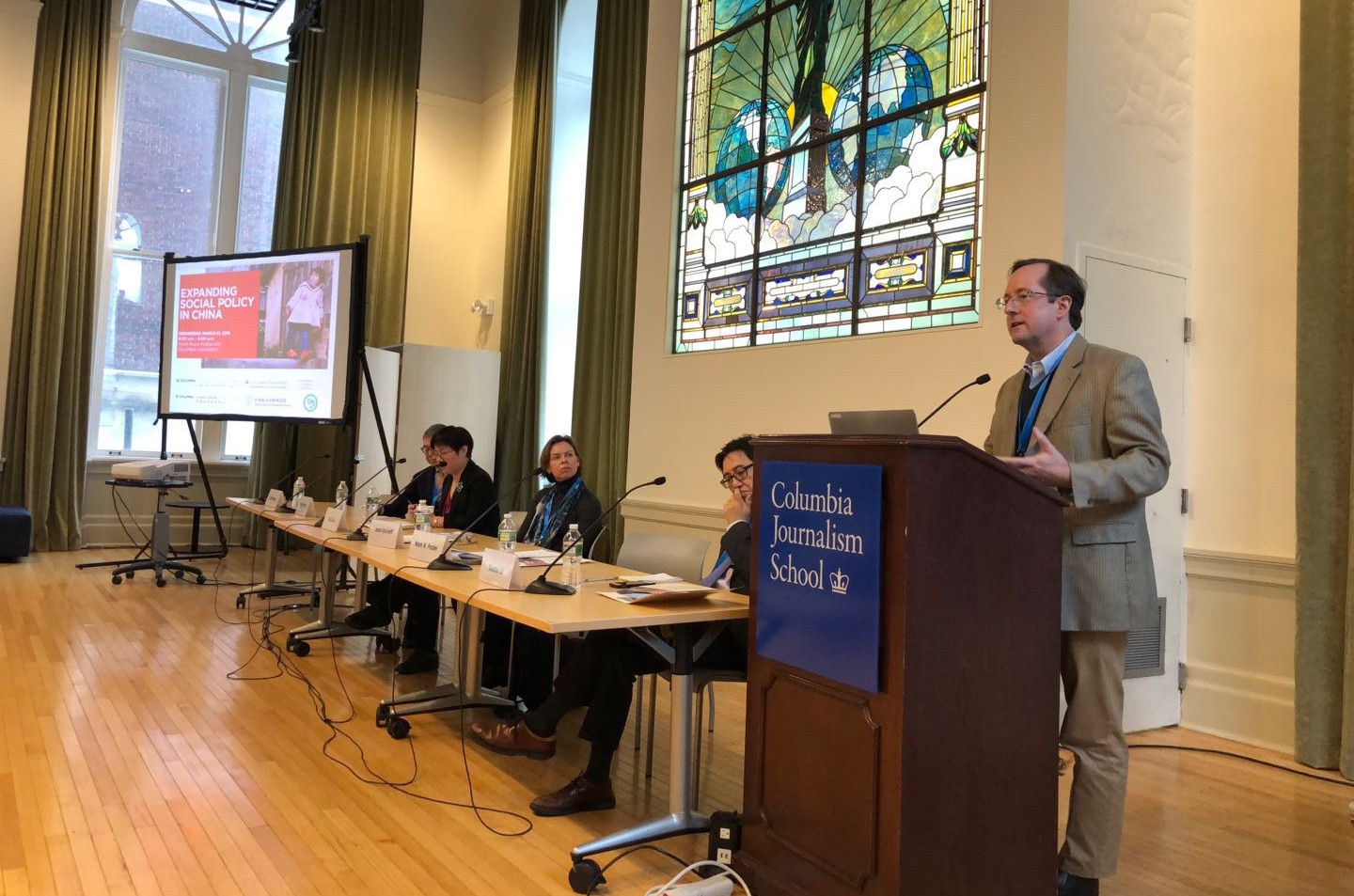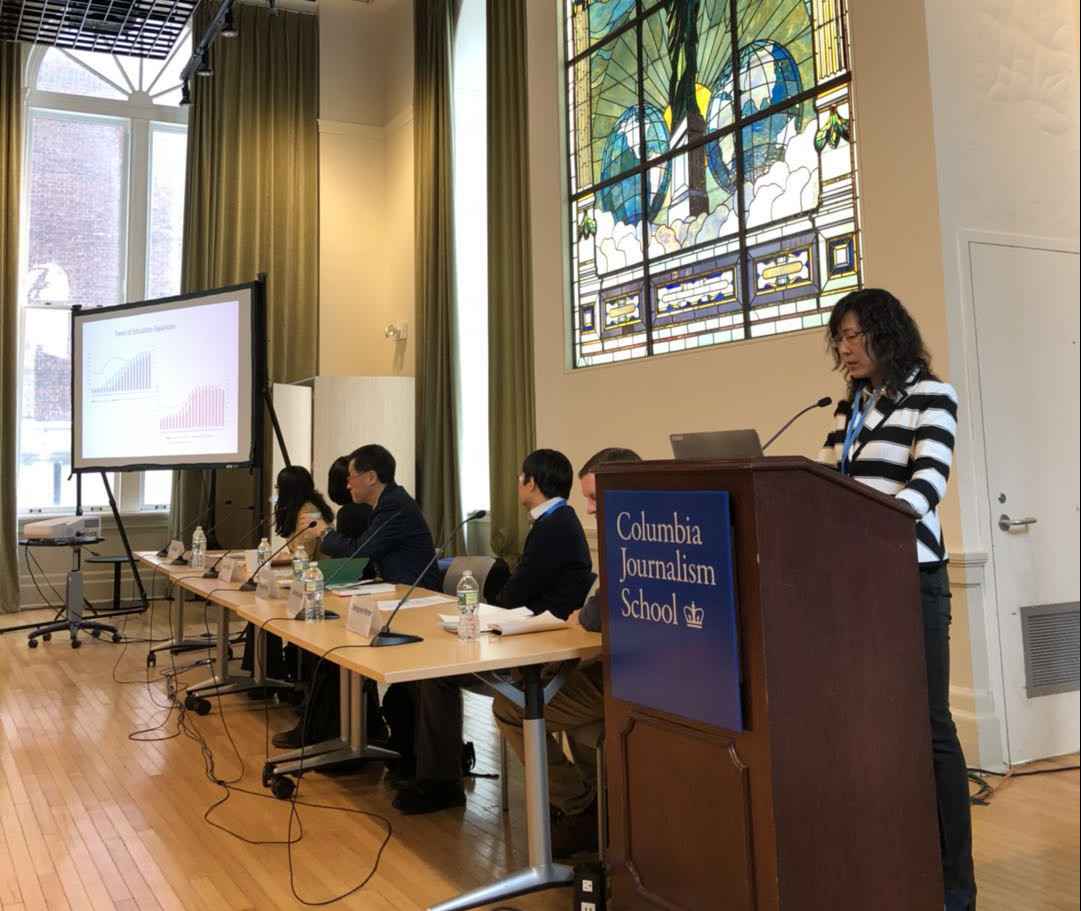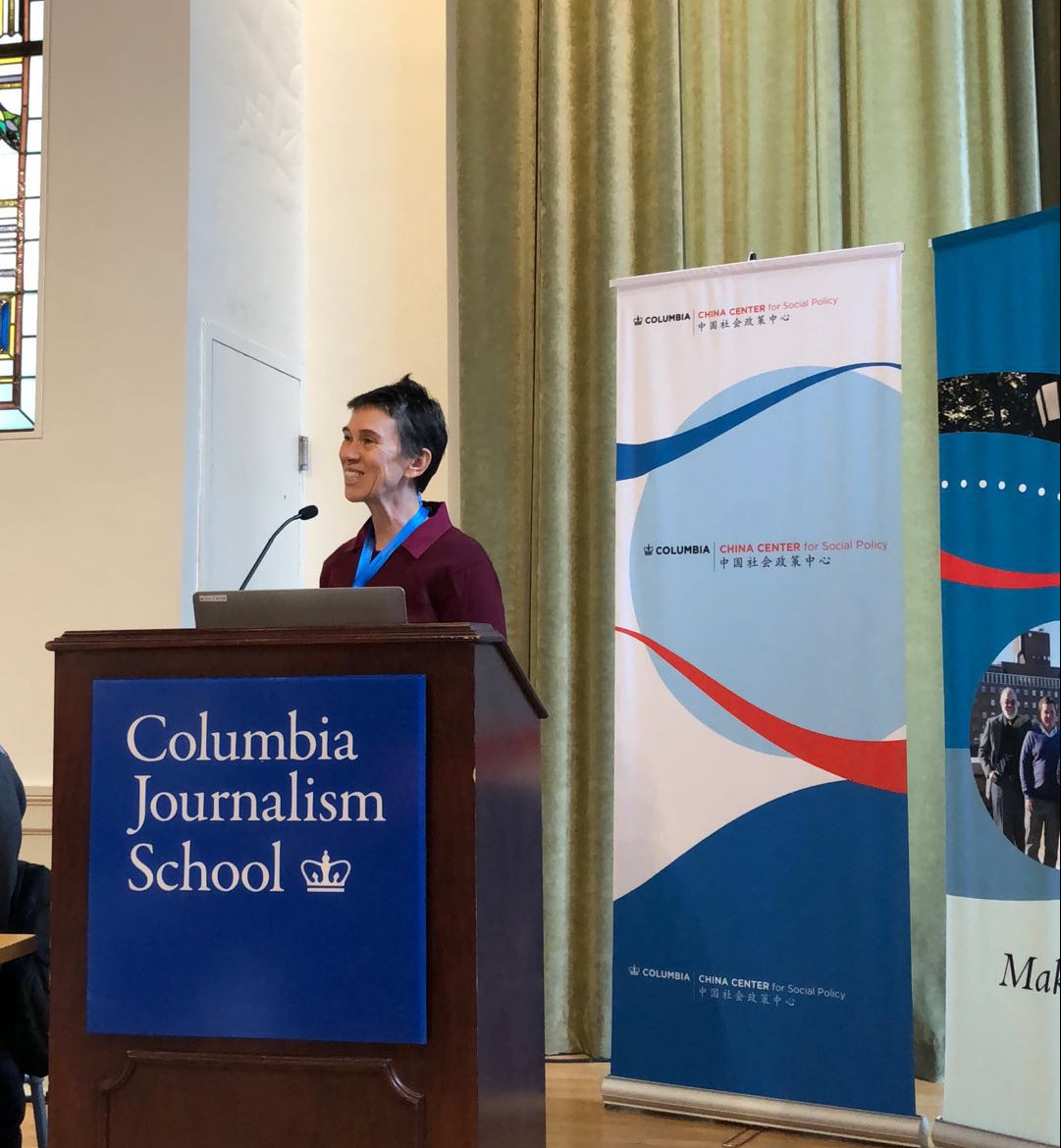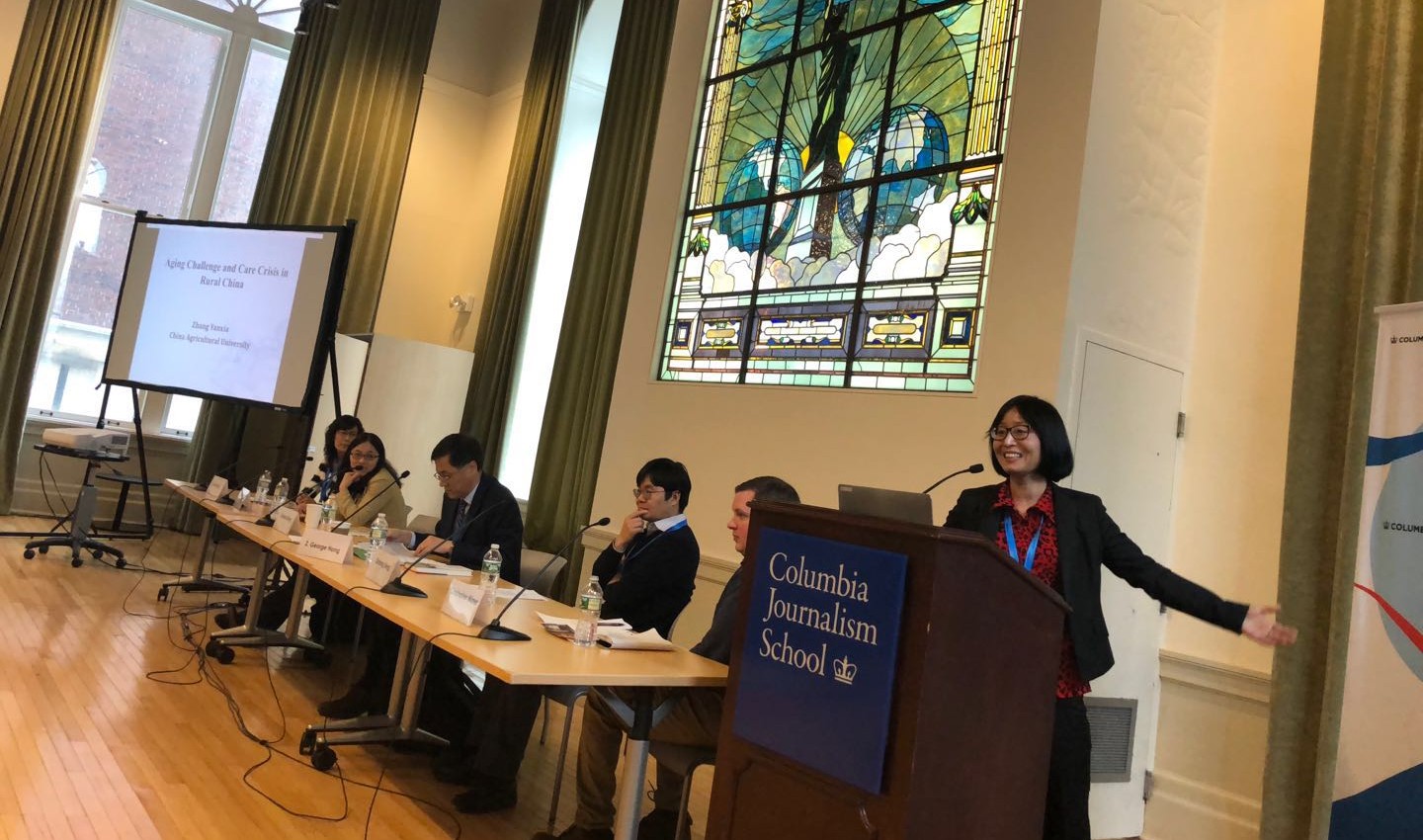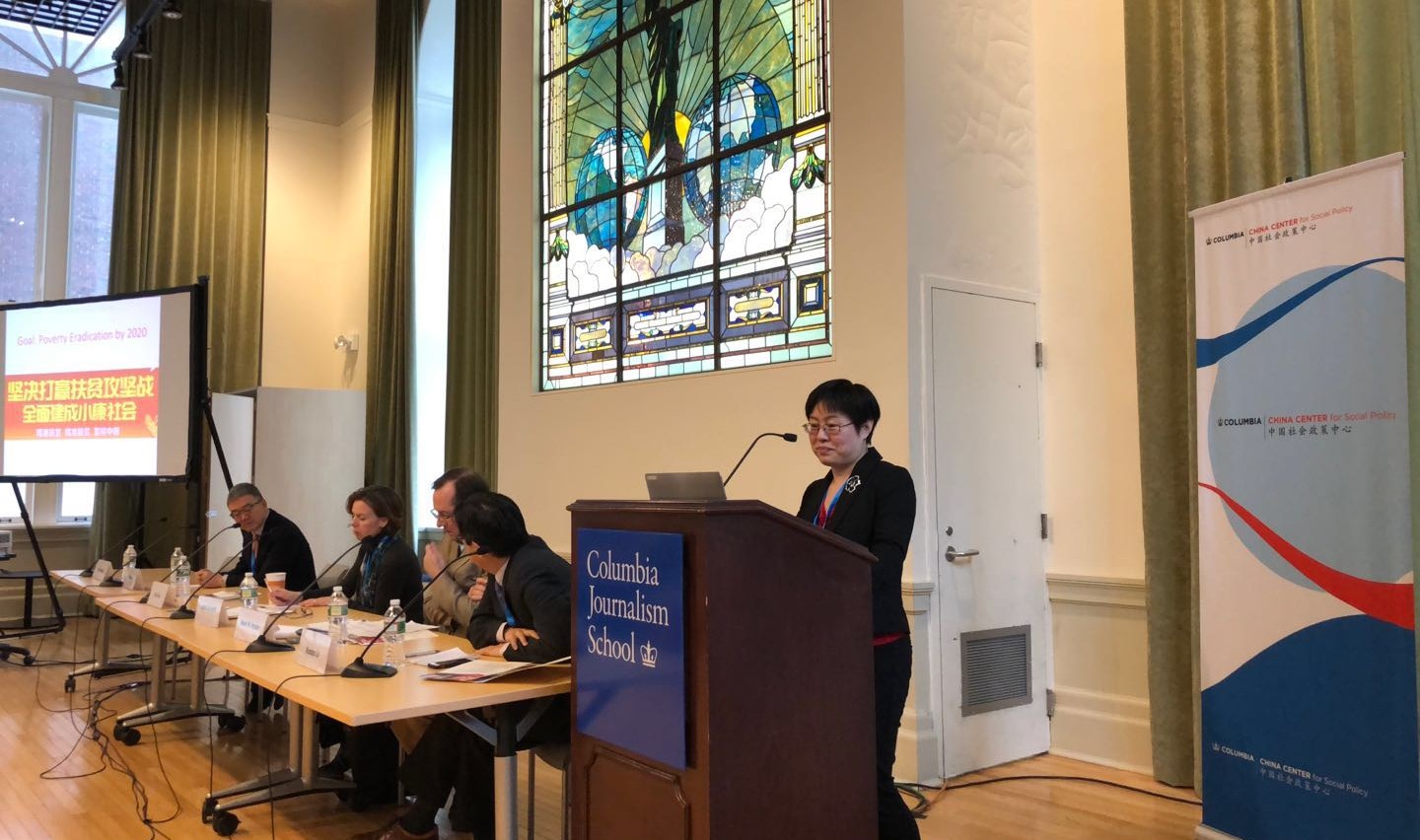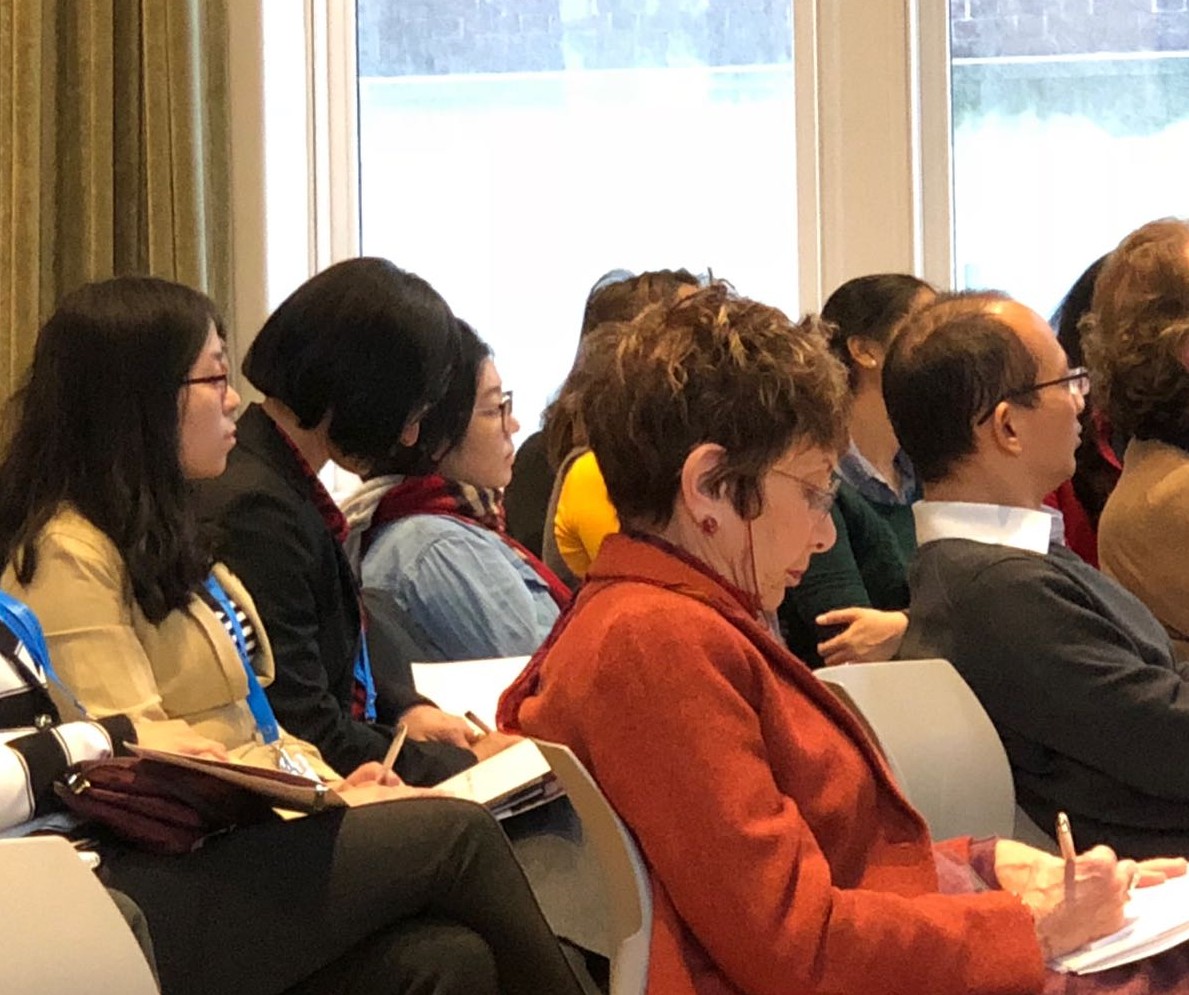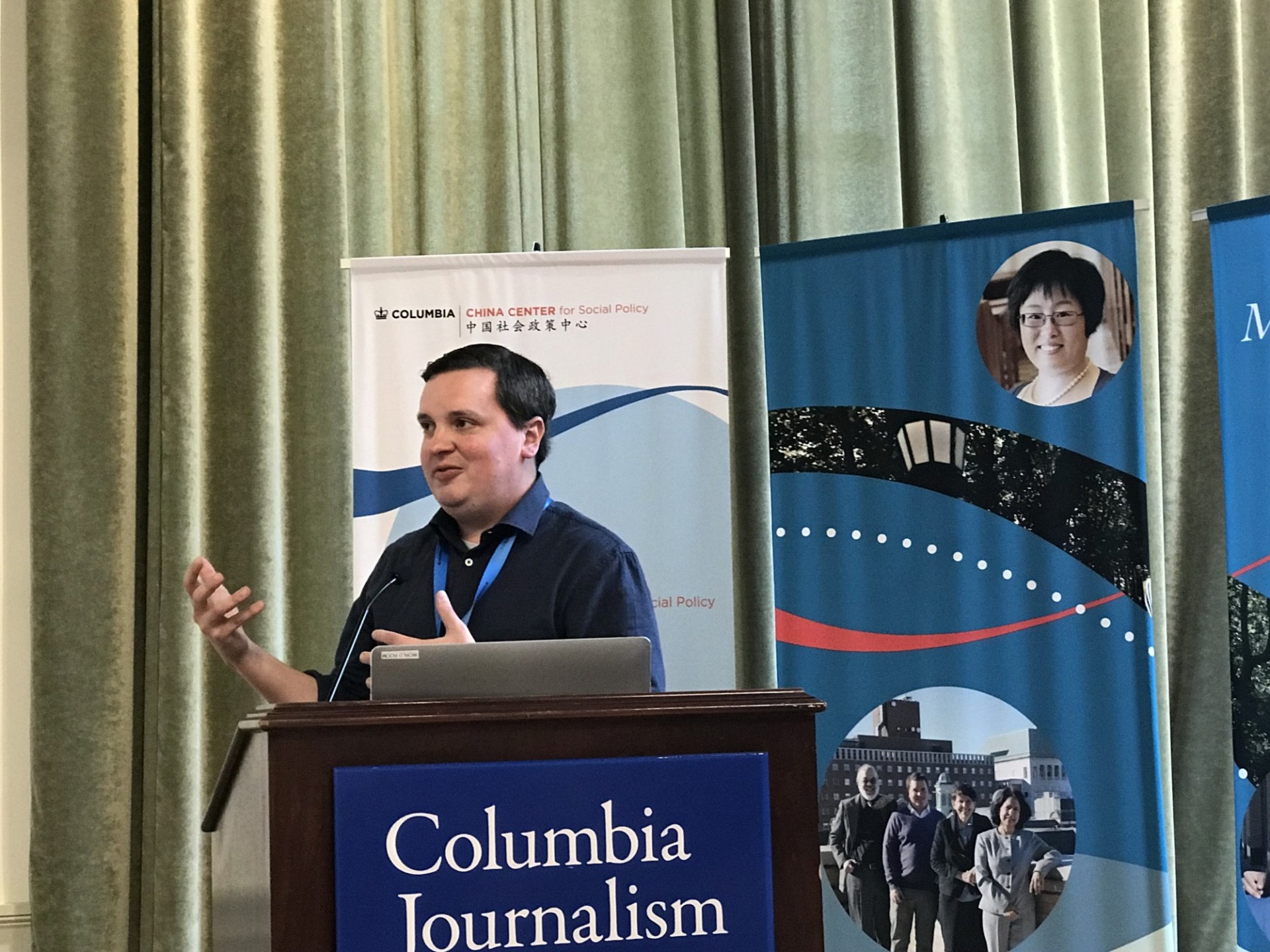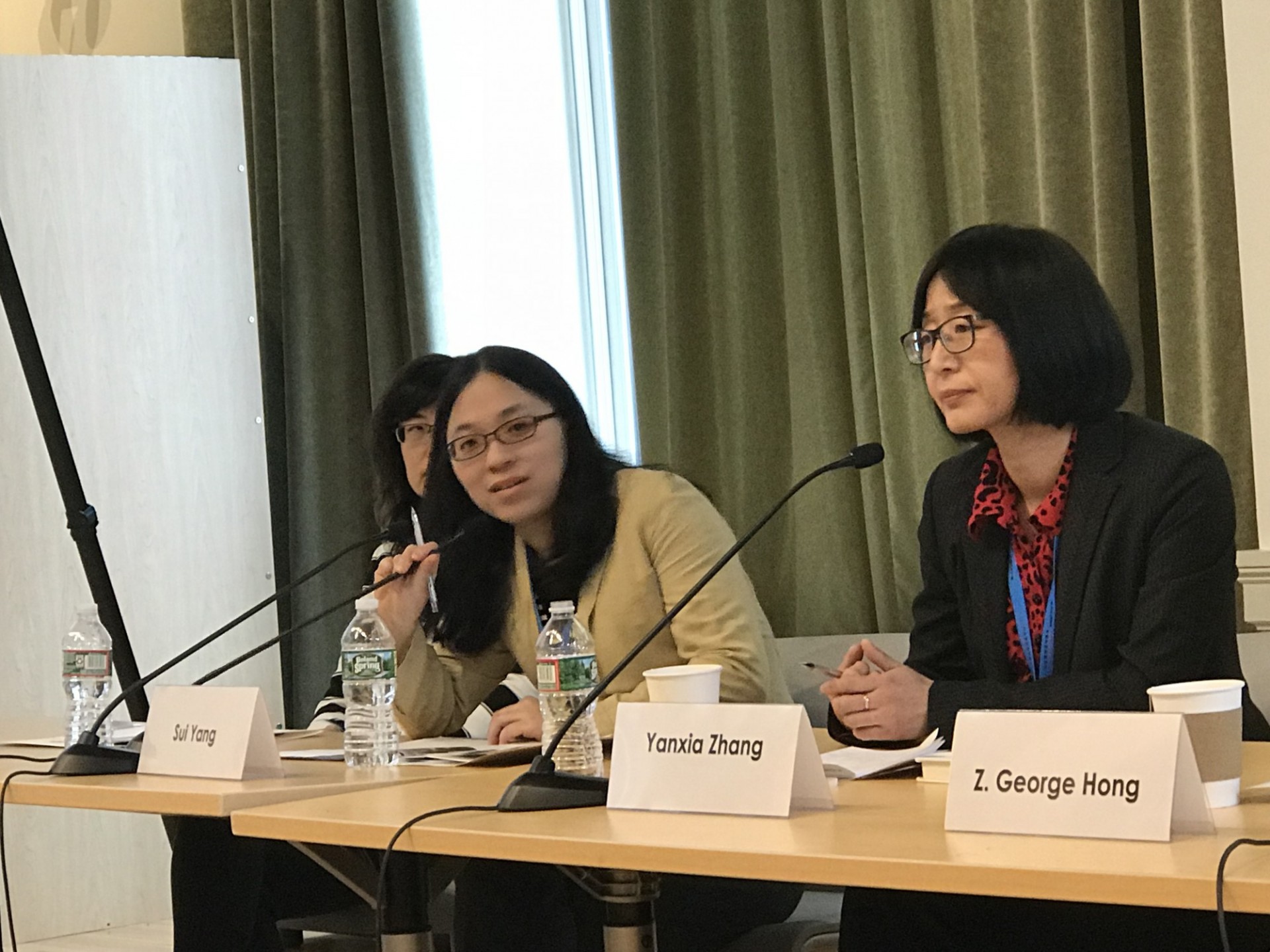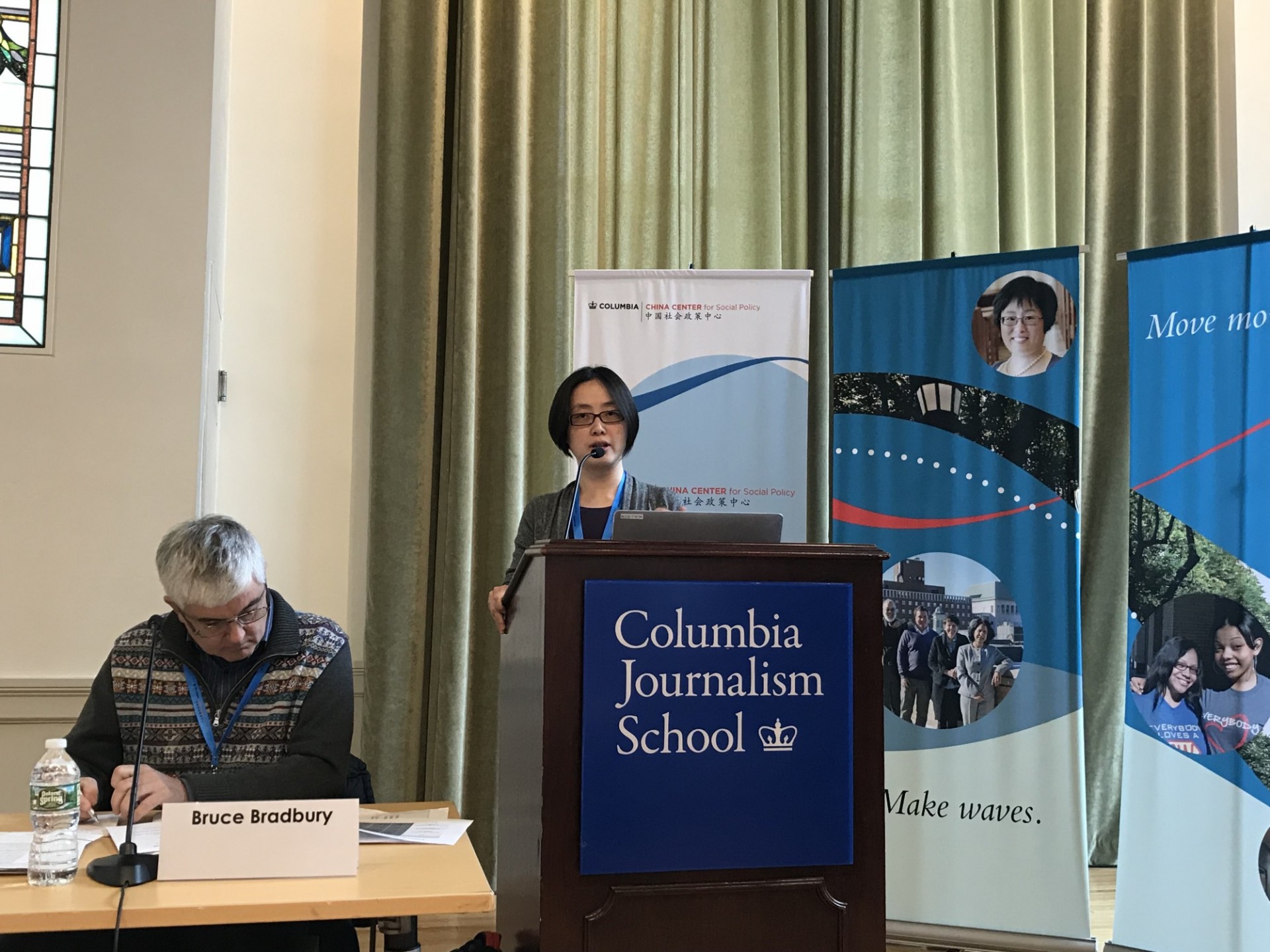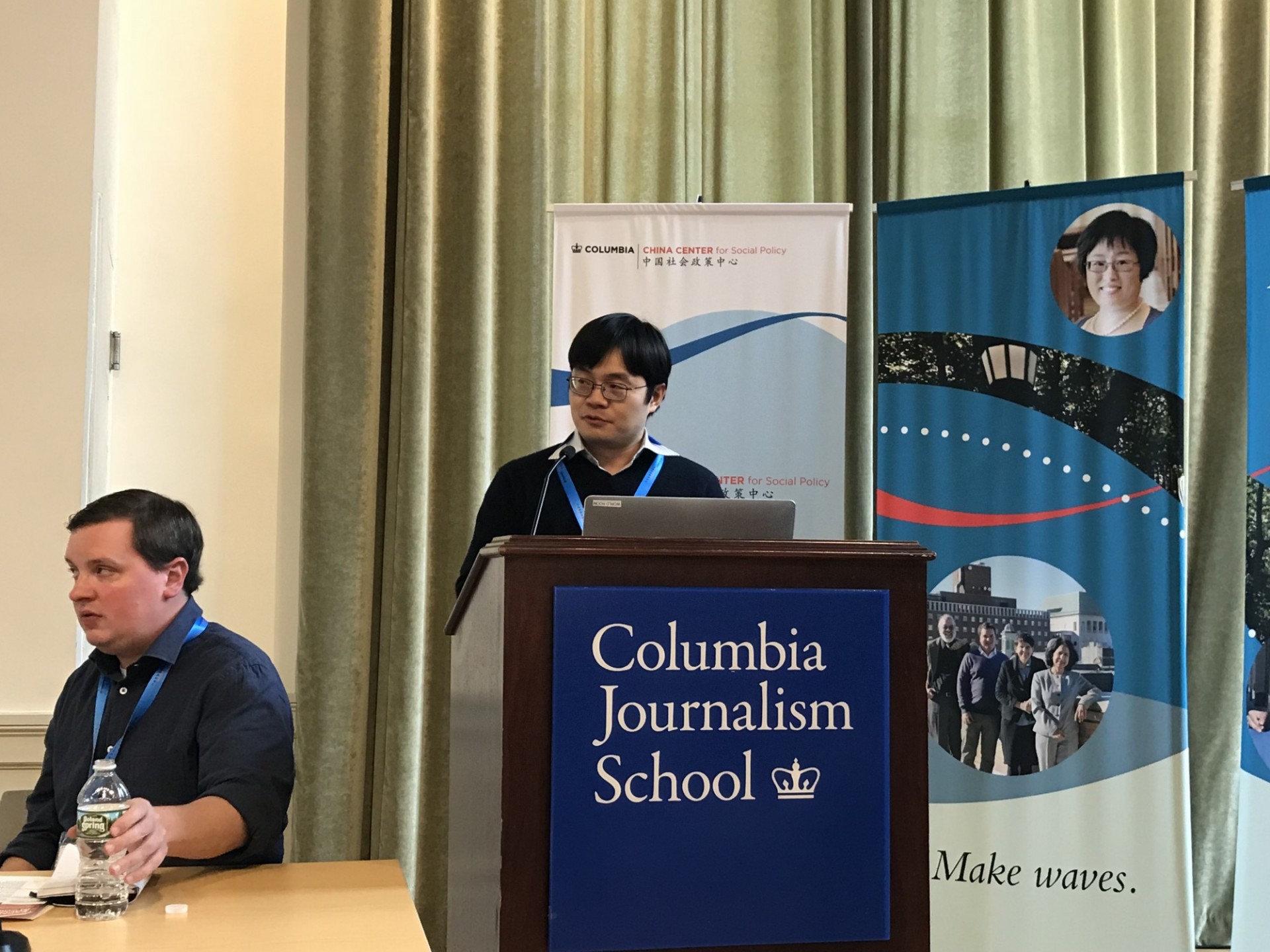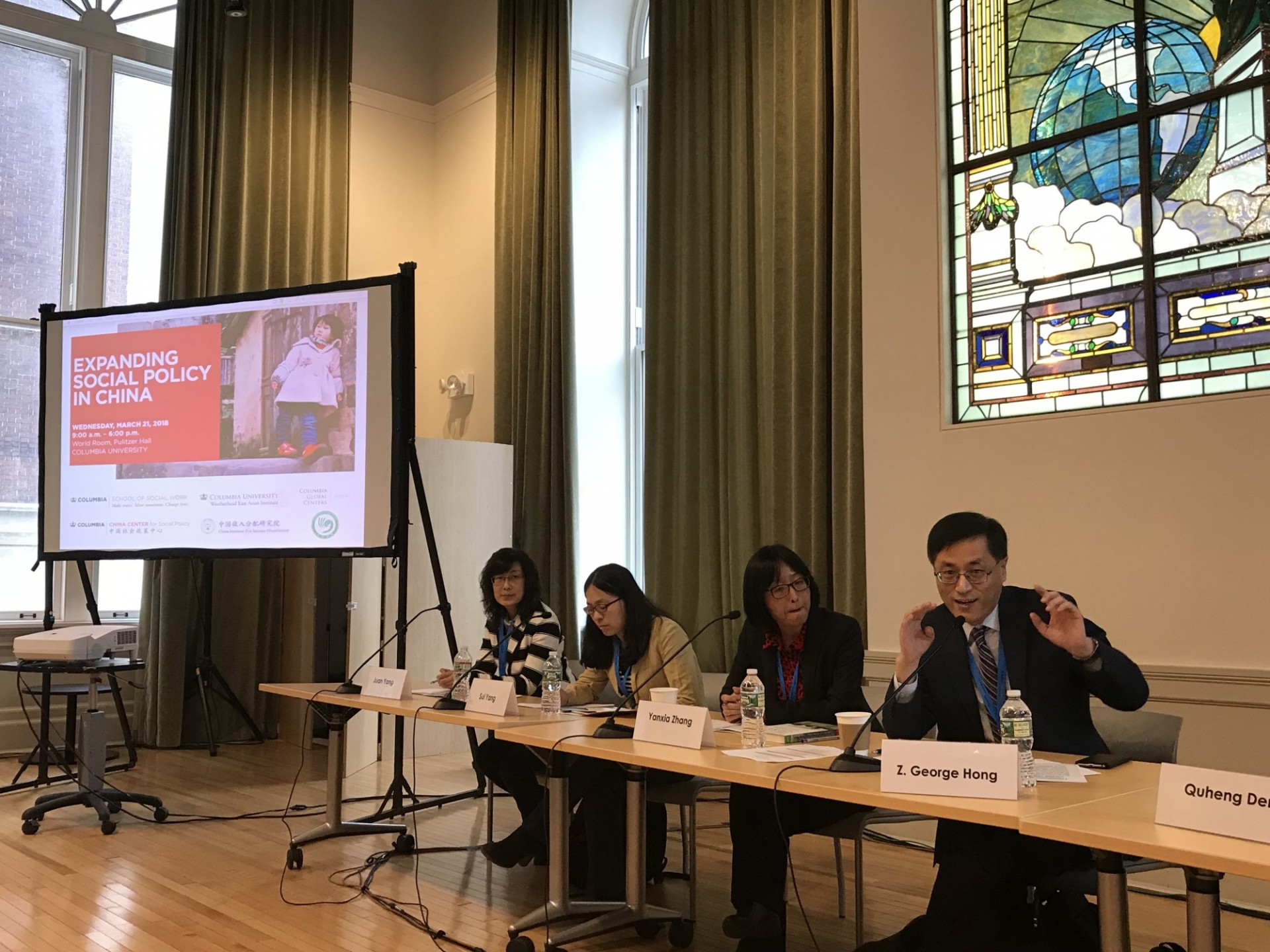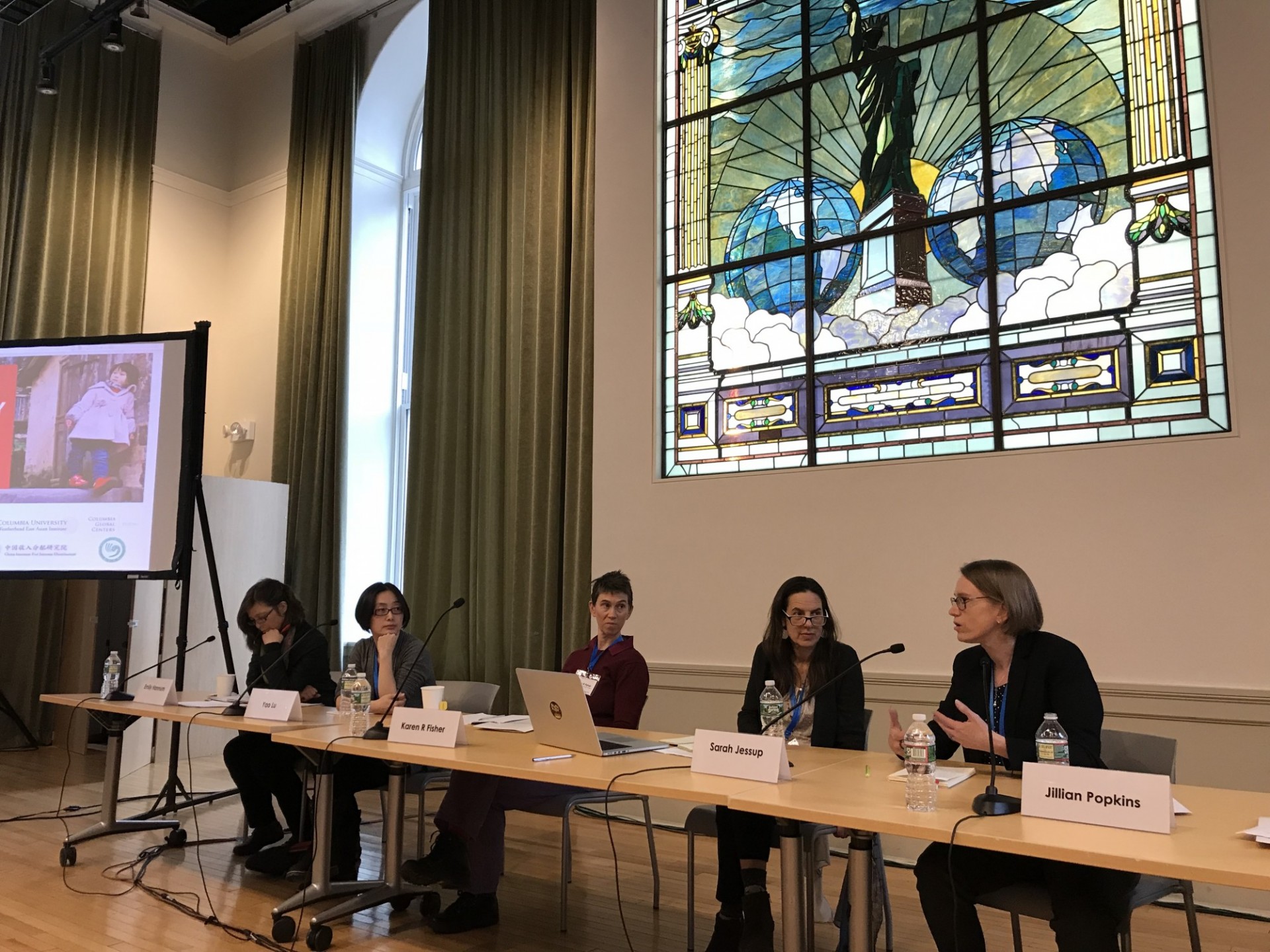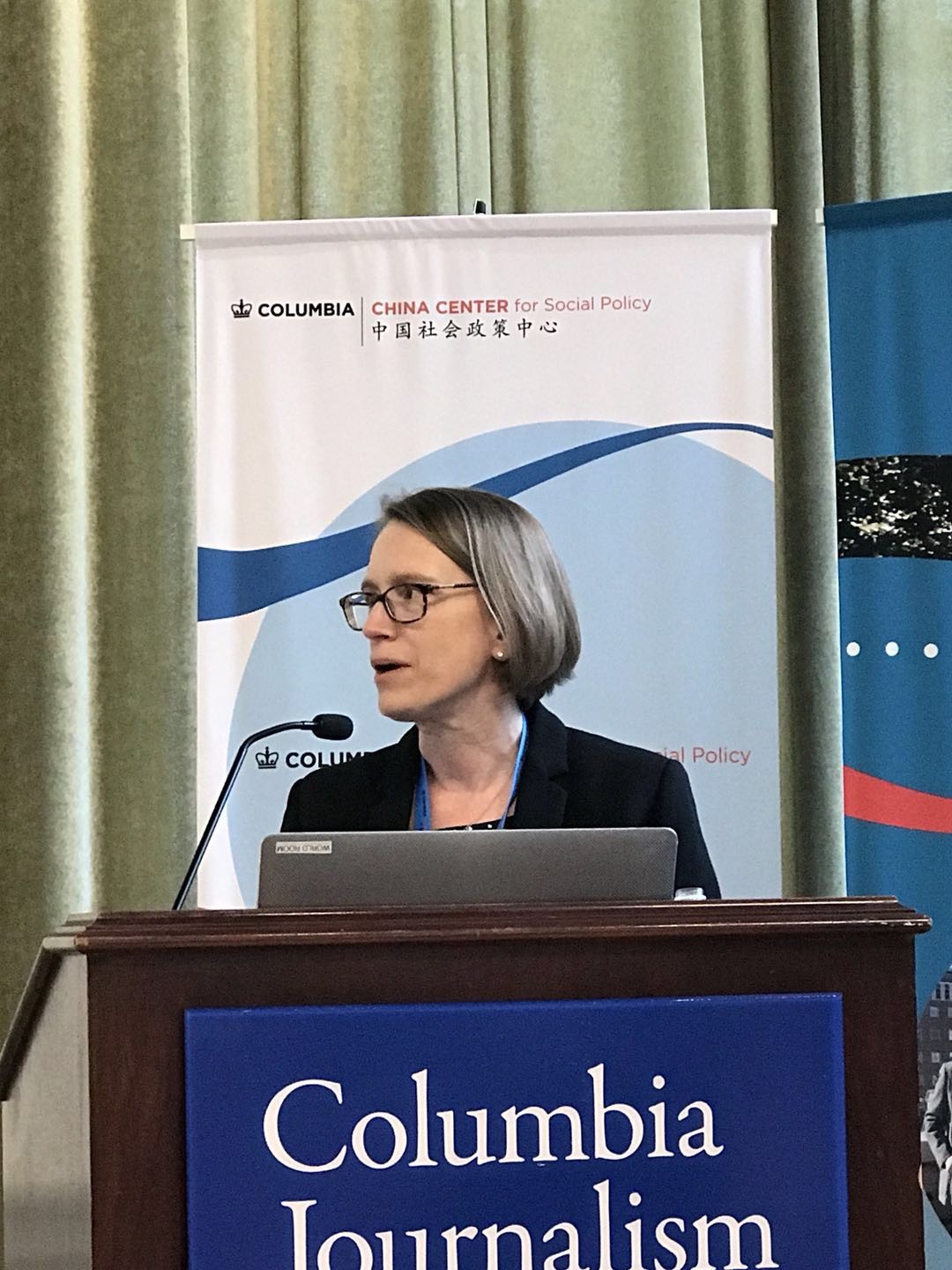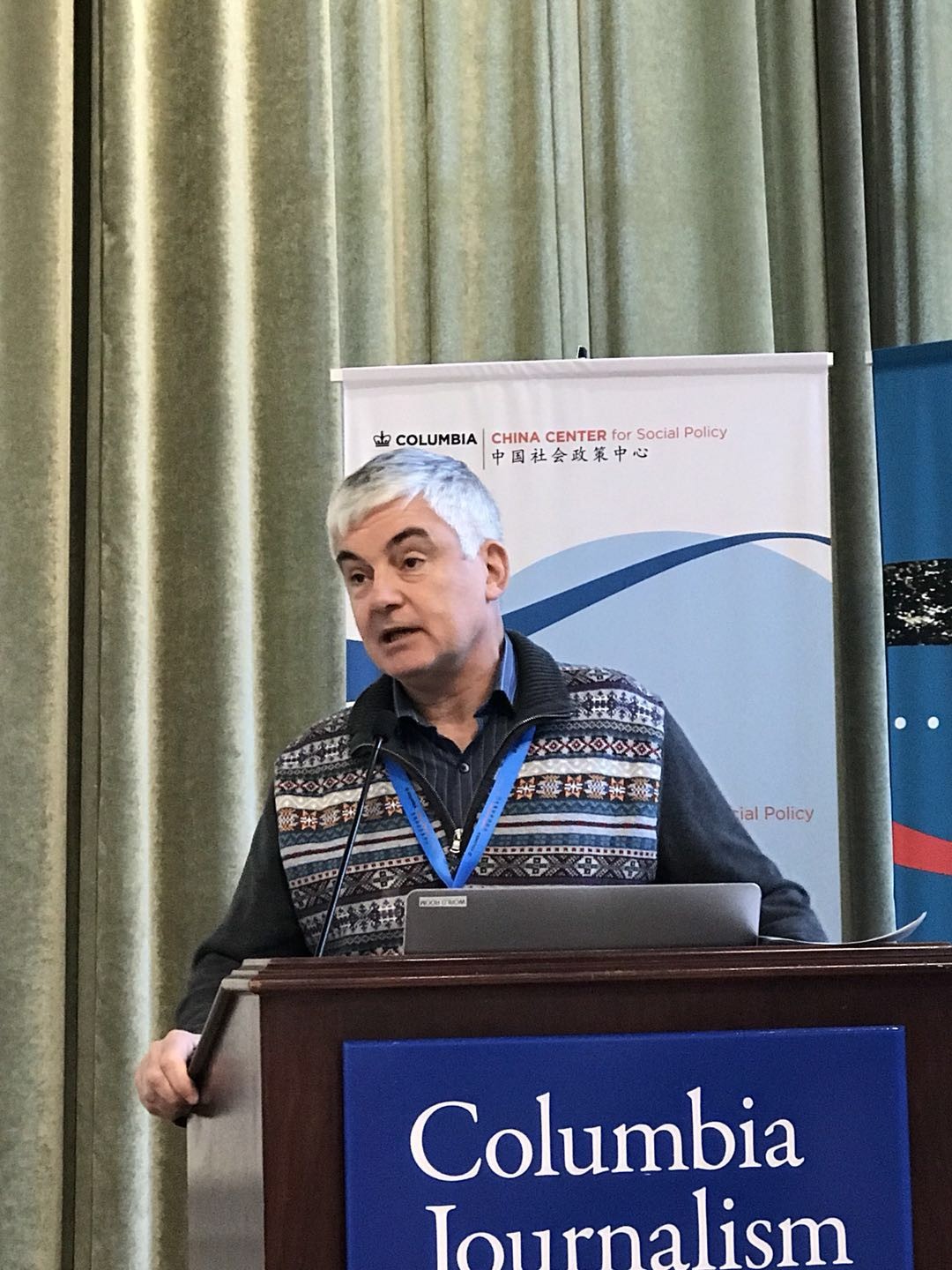The Columbia China Center for Social Policy successfully hosted its inaugural international conference on the theme of “Expanding Social Policy in China” on March 21st, 2018, at the Pulitzer Hall of Columbia University in New York City.

Despite an unusual blizzard in March that led to class cancelations and building closings, the all-day conference had a full-house audience and lively discussions throughout the day. Leading interdisciplinary scholars and policy practitioners from around the world made presentations and engaged in dialogues. As commented by Dr. Karen Fisher from the University of New South Wales, Sydney, “It’s simply amazing to be here, watching the snowfall outside and engaging in these deep conversations with colleagues from different continents.”
The conference comprised of three sessions that examined recent developments in Chinese social policies on poverty, inequality, education, child development, pensions, healthcare, disability, and civic engagement and concluded with a lively roundtable discussion on the future directions of Chinese social policy.
Click here for a summary of conference presentations and discussions.
Dr. Qin Gao, Director of the Columbia China Center for Social Policy, offered a warm welcome to the conference participants. In opening remarks, Dr. Gao stated the Center’s dual mission of research and education and its vision of serving as a platform for international dialogue and knowledge advancement. Dr. Xiaobo Lü, Acting Director of the Weatherhead East Asian Institute (WEAI), shared his enthusiasm in WEAI’s co-sponsorship of the conference and its continued dedication to joint initiatives with the China Center for Social Policy. Other co-sponsors of the conference included Columbia School of Social Work, Columbia Global Centers | Beijing, Confucius Institute, and the China Institute for Income Distribution of Beijing Normal University.
Throughout the conference, the audience participated actively in the discussion. New topics related to social policy emerged, including gender inequality, assessment of government performance, environment policy, and artificial intelligence and its influence on both the labor market and welfare systems. The conference also provided a venue for junior and senior scholars to connect and mingle, laying a foundation for future exchanges. One junior scholar commented that “it is unbelievable to meet and talk to the famous scholars in the fields of social policy and China studies; before I was only seeing their names in the literature!” Dr. Dorothy Solinger, a seasoned social policy and China scholar, commented, “This conference was a great event. All presentations were first-class and packed with important data and analysis. It was a privilege to be present!”
In closing, Dr. Qin Gao summarized the conference as a great success and a kickoff to continued discussions and debates regarding social policy in China and beyond. Dr. Gao especially acknowledged the conference participants for their hard work and devotion to making the event productive and valuable. It was evident that the conference served as an inspiration for young scholars to engage in high-quality research and practitioners to be agents for positive social change. The China Center for Social Policy plans to provide future opportunities for continued dialogue and engagement by international, interdisciplinary scholars, policymakers, and practitioners.
Image Carousel with 26 slides
A carousel is a rotating set of images. Use the previous and next buttons to change the displayed slide
-
Slide 1: Question by Wang Feng
-
Slide 2: Closing Session
-
Slide 3: Carl Riskin
-
Slide 4: Tobias ten Brink
-
Slide 5: Xu Bin
-
Slide 6: Jinyu Liu
-
Slide 7: Dorthy Solinger
-
Slide 8: Openning Session
-
Slide 9: Qin Gao
-
Slide 10: Reception
-
Slide 11: Audience
-
Slide 12: Audience 2
-
Slide 13: Mark Frazier
-
Slide 14: Juan Yang
-
Slide 15: Karen Fisher
-
Slide 16: Yanxia Zhang
-
Slide 17: Qin Gao
-
Slide 18: Audience
-
Slide 19: Chris
-
Slide 20: Sui Yang
-
Slide 21: Yao Lu
-
Slide 22: Quheng Deng
-
Slide 23: Session 2
-
Slide 24: Session 3
-
Slide 25: Speaker
-
Slide 26: Speaker
